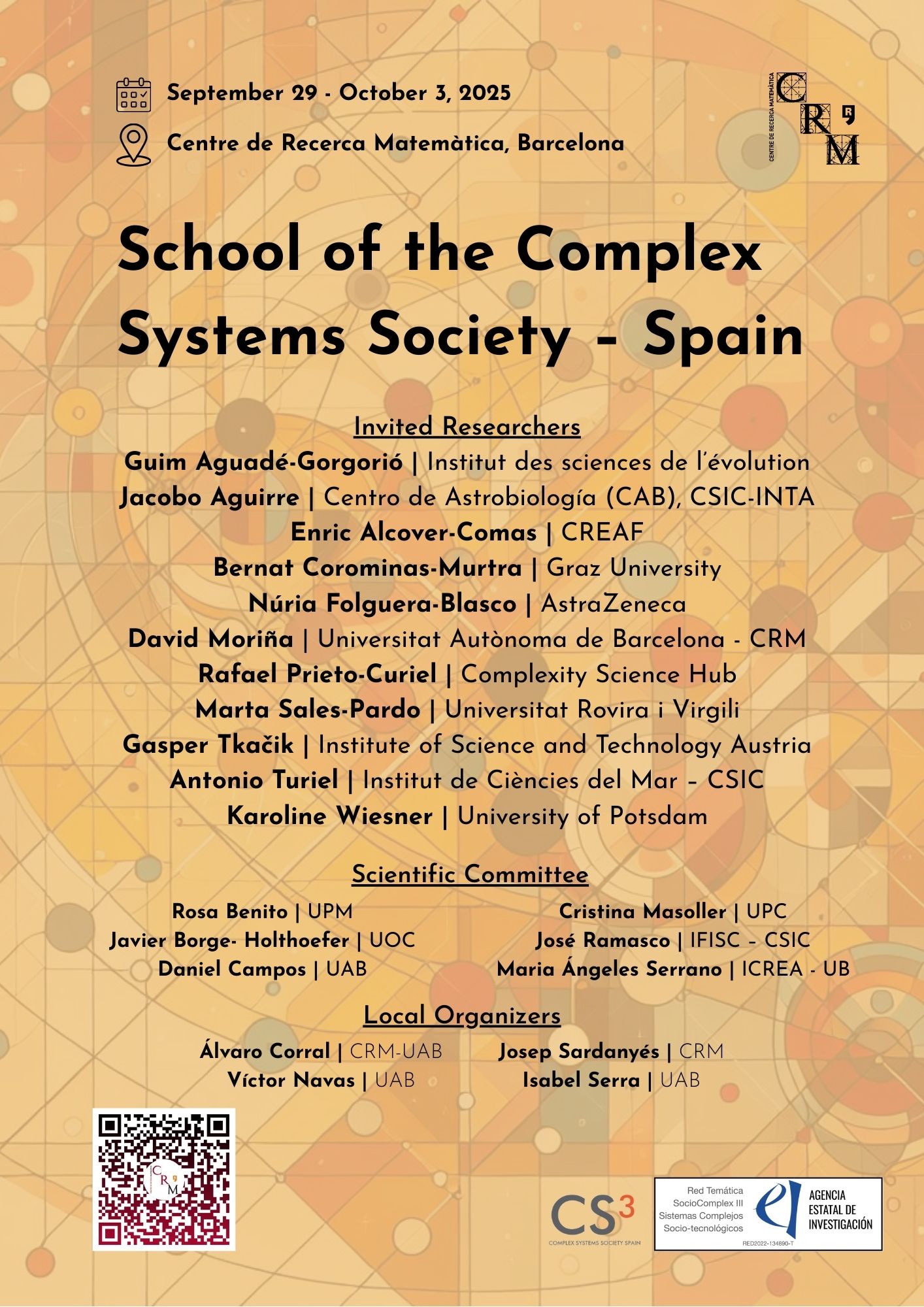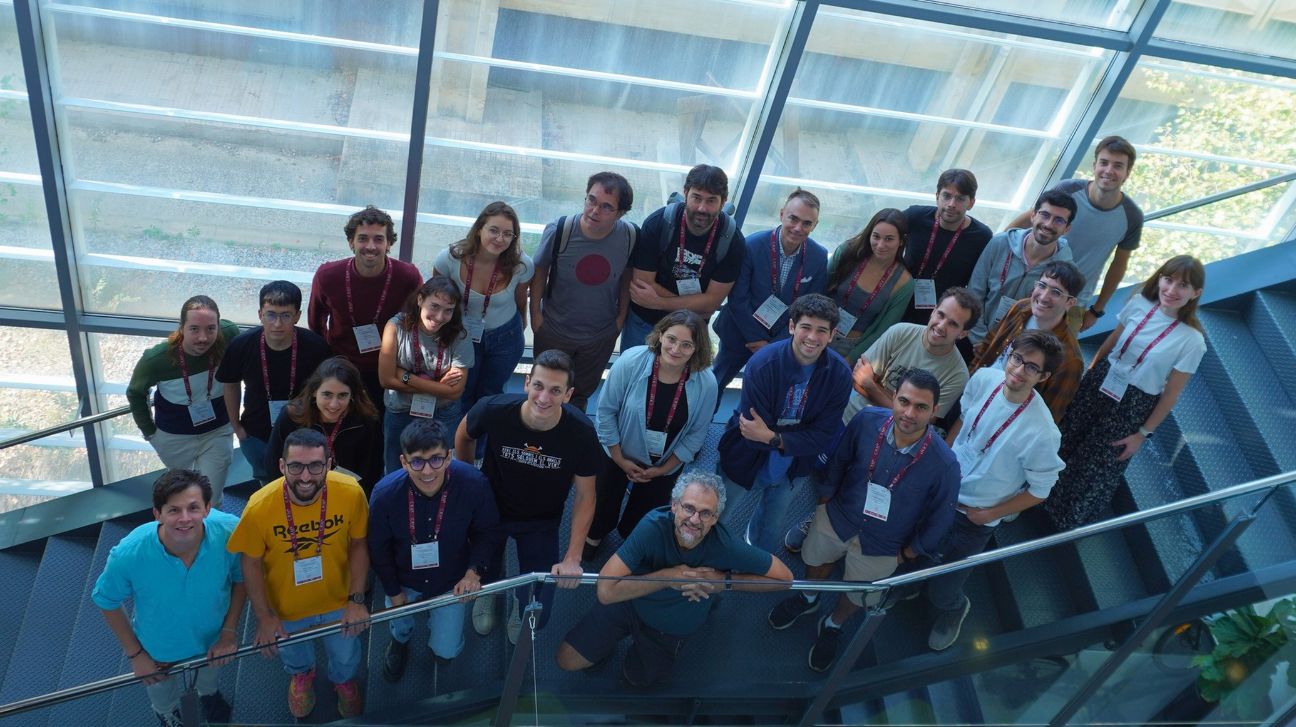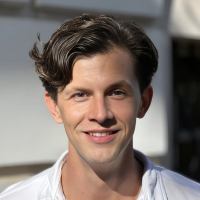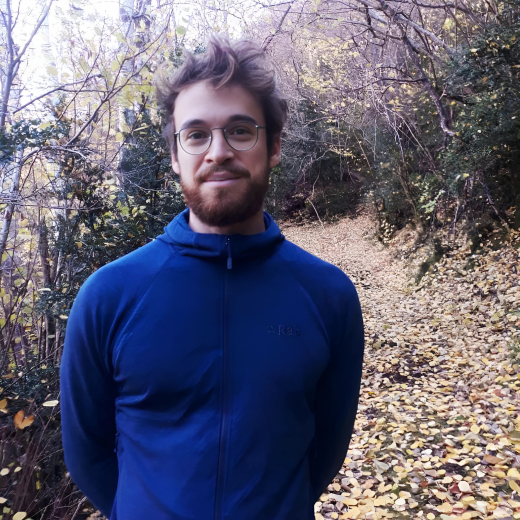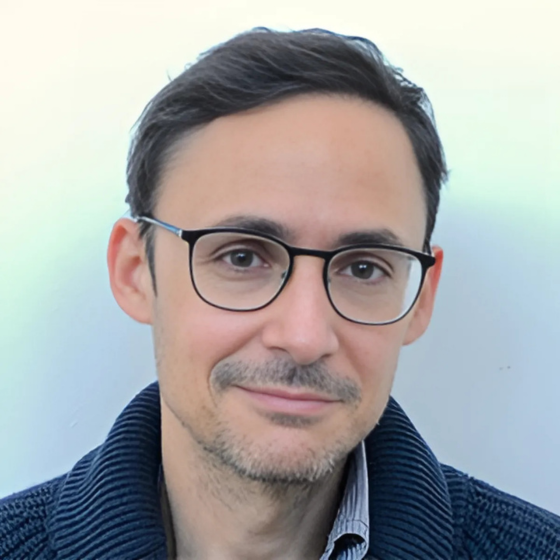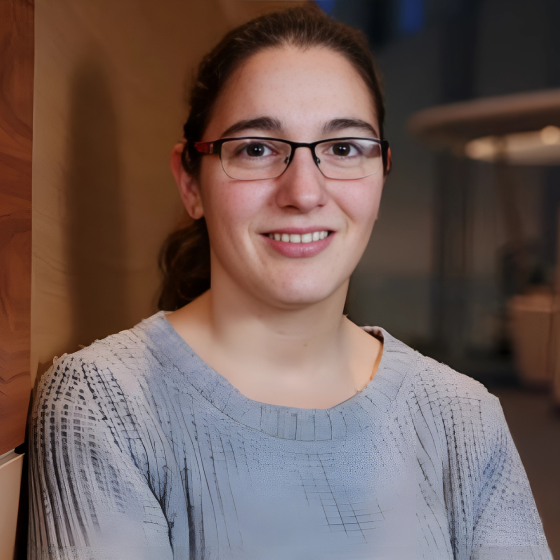Summer School on Complex Systems Society (CS3)
Sign into October 03, 2025
Venue: Centre de Recerca Matemàtica (CRM)
Room: Auditorium
Notice that this school takes place one week before the XII GEFENOL-DIFENSC Summer School on Statistical Physics of Complex Systems. The schools are coordinated and participants are encouraged to attend both of them. Registration is independent.
POSTERS
CONTRIBUTED TALKS
Introduction
The Science of Complex Systems is providing radical new ways of understanding the physical, biological, ecological, and social universe.
The Complex Systems Society Spain (CS3) is a recently created organization that encompasses the Spanish Chapter of the Complex Systems Society.
CS3 is an organization dedicated to coordinating and promoting research in complex systems in Spain. Its mission is to connect the broad and active research community in this field, broaden the range of research topics, and provide greater visibility nationally and internationally.
A number of activities have been developed already, in particular three annual meetings.
The school here is the 1st edition of a future series of biennial schools.
INVITED COURSES
The beautiful complexity of the developmental process
Bernat Corominas-Murtra
Graz University
ABSTRACT
The process of organism development leads to the emergence of a fully formed organism starting from a single cell, representing one of Nature’s most astonishing phenomena. As development unfolds, numerous processes intricately overlap to construct a viable individual, with its immense complexity —be it a fly, a mouse, or a human being— in a remarkably short amount of time. In this course we will revise several aspects of this intriguing subject following the timeline of embryo development:
–General overview of the early embryo development in animals
–Feedbacks between cell properties, stochasticity, mechanics and topology
–Dynamical singularities in the early embryo dynamics
–Phase transitions in embryonic tissue dynamics
–Phase transitions and symmetry breaking at the onset of morphogenesis
Cities as Complex Systems
Rafael Prieto-Curiel
Complexity Science Hub
ABSTRACT
1 Cities, city delineation, Zipf, Gibrat, and migration between cities
2 Scaling
3 The structure of a city
4 Urban mobility
5 Urban violence
Optimization as a predictive principle for complex biological networks
Gasper Tkačik
Institute of Science and Technology Austria (ISTA)
ABSTRACT
Biology confronts us beautiful examples of evolved networked systems, where network nodes — be it genes, neurons, or whole organisms — interact to perform a certain function. Even though the individual nodes may be heterogenous, unreliable, delayed, or noisy, the emergent collective behaviors can be stunningly reproducible. One way to understand this evolved complexity is via the use of optimization principles, by assuming that natural selection has driven such networked systems far away from random expectation, or typicality. In this course, I will try to touch upon multiple intersecting themes where optimization principles help us rationalize and perhaps even predict, ab initio, what is observed, in particular, with reference to how living systems process information. I will:
-) introduce a Bayesian statistical framework that interpolates between ab initio prediction (via optimality) and data fitting
-) give a historical background and some recent results on how optimization of information transmission has predicted non-trivial things about our nervous systems
-) talk about information transmission in genetic regulatory networks and apply the ideas to early fruit fly development
-) show some very recent work that ties together evolution and what may enable or prevent information from being optimally encoded in our genomes
These lectures bring together ideas from statistical physics, information theory, evolution, and molecular biophysics, but will not assume extensive background in any of the topics.
The Thermodynamic Limits of the Economy
Antonio Turiel
Institut de Ciències del Mar – CSIC
ABSTRACT
– Exponential Dynamics and Limits to Natural-resources Production
– Entropy and the Economic Process
– Environmental Limits: A Dynamic Ecological Perspective
– Agent-based numerical models: World2 (“Limits to Growth”) and Later Models
– Is Collapse Avoidable? An Anthropology and a Systems Perspective on Collapses Throughout History
Introduction to Complexity Science – Going from foundations in philosophy, mathematics, and physics to current research in social science
Karoline Wiesner
University of Potsdam
ABSTRACT
From Randomness to Complexity
Data Processing in Complexity science; linear and non-linear dimensionality reduction techniques and why they matter
INVITED TALK
Modeling tumors as complex ecosystems
Guim Aguadé-Gorgorió
Institut des sciences de l’évolution de Montpellier
ABSTRACT
Many cancers resist therapeutic intervention. This is fundamentally related to intratumor heterogeneity: like species in an ecosystem, multiple cancer populations with different phenotypic signatures coexist inside a tumor. In this brief talk I will present recent methods from theoretical ecology that could help us better understand the complexity of heterogeneous tumors. I will also discuss the interaction between cancer and two other complex systems, the immune system and the gut microbiome, with implications across a wide range of diseases. The goal is to propose open questions and a potential roadmap for further research in cancer, immune and microbial ecology.
There and back again… An astrobiologist’s tale of complexity
Jacobo Aguirre
Centro de Astrobiología (CAB), CSIC-INTA
ABSTRACT
The path to the origin of life on Earth was marked by successive transitions toward complexity, from astrochemistry to biomolecules and, eventually, to living organisms. Unraveling the nature of these transitions remains a central challenge in astrobiology, where the potential of complexity theory has yet to be fully realized.
In this seminar, I will first address the main unresolved difficulties in the study of the origin and early evolution of life, and explore how complexity science, in synergy with recent advances in data science, can play a pivotal role in tackling them.
Second, I will focus on the starting point of the long path toward life: the emergence of molecular complexity in outer space. Astrochemistry has undergone dizzying advances over the last decade thanks to large astrophysical facilities such as ALMA and the recently launched James Webb Space Telescope. To date, around 350 molecules have been detected in the interstellar medium, some of prebiotic relevance, and many more are expected in the years ahead. I will explain how we examined the emergence of molecular complexity in space through the lens of network science [1], suggesting that the apparent success of modern astrochemical models in reproducing astrophysical observations may stem less from their fidelity to the real underlying chemical processes than from their excessive complexity and sloppy nature [2,3]. This perspective invites a necessary rethinking of the numerical and formal approaches of this rapidly evolving discipline, highlighting the still uncertain but promising role that complexity theory may play in addressing this challenge.
[1] M. García-Sánchez, I. Jiménez-Serra, F. Puente-Sánchez, J. Aguirre, The emergence of interstellar molecular complexity explained by interacting networks, PNAS 119 (30), e2119734119 (2022).
[2] M. Fernández-Ruz, I. Jiménez-Serra, M. Castro, M. Ruiz-Bermejo and J. Aguirre, Strong parameter hierarchy in the interstellar phosphorus chemical network, Frontiers in Astronomy and Space Sciences 12, 1570525 (2025).
[3] M. Fernández-Ruz, I. Jiménez-Serra and J. Aguirre, A theoretical approach to the complex chemical evolution of phosphorus in the interstellar medium, Astrophysical Journal 956, 47 (2023).

The perfect ‘prescription’: the use of mathematical modelling in pharma
Núria Folguera-Blasco
AstraZeneca
ABSTRACT
The perfect ‘prescription’: the use of mathematical modelling in pharma
Did you know that for a new drug to be approved by the relevant regulatory agencies, a mathematical model using patient data needs to be developed? Have you ever wondered why certain drugs have different doses depending on individuals’ body weight? In this talk, I will aim to review some of the mathematical modelling work happening behind the scenes in the pharmaceutical industry, as well as sharing some insights based on personal experience on how a theoretical background fits in an industry context.
I hope that, by the end of the talk, you all feel that you were administered the right (content) dose to meet your expectations!
Estimating what is under the tip of the gender-based violence iceberg: a statistical modelling approach
David Moriña
Universitat Autònoma de Barcelona – Centre de Recerca Matemàtica
ABSTRACT
Gender-based violence (GBV) is a major public health issue, with an estimated 30% of women worldwide experiencing physical and/or sexual violence in their lifetime. Primary health care is a critical setting for detection, yet many cases remain hidden as victims often do not seek medical support. Evidence from Catalonia suggests that the public primary health care system may currently be capturing only about 50% of GBV cases, meaning that a full understanding of the phenomenon could take more than two decades. Similar patterns are expected in countries with comparable socioeconomic contexts. In this seminar, we introduce a statistical modelling approach designed to estimate the true burden of GBV beyond official records. We also show that awareness and training campaigns for primary health care professionals can significantly reduce underreporting, but only if repeated regularly rather than implemented as one-time actions.
Using inference for problems in complex systems
Marta Sales-Pardo
Universitat Rovira i Virgili
ABSTRACT
Complex systems science often deals with data and our modeling choices often hide assumptions that are hidden behind the choices we make.
In this lecture-talk I will give an broad overlook of what is Bayesian inference and how we can use it to make our assumptions explicit. Then I will talk about how we can use it to discriminate between models for our data and to solve problems with complex networks data.
INVITED TUTORIALS
Exploring socio-ecological transition pathways with pymedeas models
Enric Alcover-Comas
CREAF
scientific committee
local organizers
SCHEDULE
Monday September 29th | Tuesday September 30th | Wednesday October 1st | Thursday October 2nd | Friday October 3rd | |
9:00 9:20 | Registration | ||||
9:20 9:30 | Welcome/opening | ||||
9:30 10:30 | Cities as Complex Systems Rafael Prieto-Curiel Complexity Science Hub | The Beautiful Complexity of the Developmental Process Bernat Corominas-Murtra Graz University | The Beautiful Complexity of the Developmental Process Bernat Corominas-Murtra Graz University | The Thermodynamic Limits of the Economy Antonio Turiel Institut de Ciències del Mar – CSIC | The Thermodynamic Limits of the Economy Antonio Turiel Institut de Ciències del Mar – CSIC |
10:30 11:30 | The Beautiful Complexity of the Developmental Process Bernat Corominas-Murtra Graz University | Cities as Complex Systems Rafael Prieto-Curiel Complexity Science Hub | Cities as Complex Systems Rafael Prieto-Curiel Complexity Science Hub | ||
11:30 12:00 | COFFEE BREAK | GROUP PICTURE + COFFEE BREAK | COFFEE BREAK | ||
12:00 13:00 | The Beautiful Complexity of the Developmental Process Bernat Corominas-Murtra Graz University | Cities as Complex Systems Rafael Prieto-Curiel Complexity Science Hub | Cities as Complex Systems Rafael Prieto-Curiel Complexity Science Hub | Optimization as a Predictive Principle for Complex Biological Networks Gasper Tkačik Institute of Science and Technology Austria (ISTA) | Optimization as a Predictive Principle for Complex Biological Networks Gasper Tkačik Institute of Science and Technology Austria (ISTA) |
13:00 14:00 | Using inference for problems in complex systems Marta Sales-Pardo Universitat Rovira i Virgili | Estimating what is under the tip of the gender-based violence iceberg: a statistical modelling approach David Moriña Universitat Autònoma de Barcelona - CRM | The perfect ‘prescription’: the use of mathematical modelling in pharma Núria Folguera-Blasco AstraZeneca | Introduction to Complexity Science Karoline Wiesner University of Potsdam | Introduction to Complexity Science Karoline Wiesner University of Potsdam |
14:00 15:30 | LUNCH | ||||
15:30 16:30 | Optimization as a Predictive Principle for Complex Biological Networks Gasper Tkačik Institute of Science and Technology Austria (ISTA) | Optimization as a Predictive Principle for Complex Biological Networks Gasper Tkačik Institute of Science and Technology Austria (ISTA) | Optimization as a Predictive Principle for Complex Biological Networks Gasper Tkačik Institute of Science and Technology Austria (ISTA) | Introduction to Complexity Science Karoline Wiesner University of Potsdam | Introduction to Complexity Science Karoline Wiesner University of Potsdam |
16:30 17:30 | Poster Session + Reception | Modeling tumors as complex ecosystems Guim Aguadé-Gorgorió Institut des sciences de l'évolution de Montpellier | The Beautiful Complexity of the Developmental Process Bernat Corominas-Murtra Graz University | There and back again… An astrobiologist’s tale of complexity Jacobo Aguirre Centro de Astrobiología (CAB), CSIC-INTA | |
17:30 18:30 | Tutorial Enric Alcover-Comas CREAF | ||||
20:30 | SOCIAL DINNER | ||||
LIST OF PARTICIPANTS
| Name | Institution |
|---|---|
| Marcos Martinez Jimenez | CSIC |
| Alvaro Corral | Universitat Autònoma de Barcelona – Centre de Recerca Matemàtica |
| Víctor Navas Portella | Universitat Autònoma de Barcelona |
| Jorge Mampel Danta | Universitat de Les Illes Balears |
| Alexandra-Anamaria Sorinca | King's College London |
| Bernat Corominas-Murtra | Graz University |
| Rafael Prieto-Curiel | Complexity Science Hub |
| Gasper Tkacik | Institute of Science and Technology Austria (ISTA) |
| Antonio Turiel | Institute of Marine Sciences, CSIC |
| Karoline Wiesner | University of Potsdam |
| Marta Sales Pardo | Universitat Rovira i Virgili |
| Jordi Ruiz Ponsell | Universitat de Barcelona |
| Canigó Callau i Boix | CSIC |
| Martí Planasdemunt Hospital | Universitat Politècnica de Catalunya |
| Paula Rodríguez Sánchez | Universidad Rey Juan Carlos |
| Marie Sellier-Prono | École normale supérieure - Paris |
| Juan Gancio | Universitat Politècnica de Catalunya |
| Robert Benassai | Universitat Oberta de Catalunya |
| Manuel Santos Gutierrez | University of Leicester |
| Harry de los Rios | Universitat Oberta de Catalunya |
| Eva Rifà Rovira | Universitat de Barcelona |
| Emma Valdés Martín | Universitat de Barcelona |
| Pedro Juan Rivera Torres | Universidad de Salamanca |
| Adrián Redondo Fernández | Universitat Rovira i Virgili |
| Andrés Aragoneses | Universitat Politècnica de Catalunya |
| Núria Velasco Falguera | Centre de Recerca Matemàtica |
| Pablo Gallarta | Universidad de Zaragoza |
| Guim Aguadé-Gorgorió | University of Montpellier |
| Núria Folguera Blasco | Francis Crick Institute |
| Jacobo Aguirre | Centro de Astrobiología (CAB), CSIC-INTA |
| Enric Alcover-Comas | CREAF |
| Teodoro Mayayo | Universitat Autònoma de Barcelona |
| Tamari Kldiashvili | University of Graz |
| Juan Arellano Tintó | Centre de Recerca Matemàtica |
| Javier Borge | Universitat Oberta de Catalunya |
| Oscar Ricardo Mejia | Universitat Politècnica de Catalunya |
| Jonathan Diez | Universitat de Barcelona |
| Jordan Martinez | Universitat Autònoma de Barcelona |
| Jose Salgado | Universitat Politècnica de Catalunya |
| David Moriña | Universitat Autònoma de Barcelona – Centre de Recerca Matemàtica |
Poster and contributed talks
Participants are encouraged to present their research results or open problems in a short talk or a poster format. The poster boards are A0 format (vertical orientation).
- Deadline for abstract submission: September 7, 2025
- Resolutions: September 10, 2025
POSTERS
CONTRIBUTED TALKS
registration
You will be asked to create a CRM web user account before registering to the activity through the following link (please note that it will be necessary to fill in both the personal and academic requested information in the web user intranet):
CRM USER CREATION
Once you have created your CRM user, you can sign in on the activity web page to complete your registration or click on the following link.
REGISTER
Registration fee 210 € includes attendance to all the courses, seminars, and activities of the school, gala dinner, coffee breaks and lunch.
INVOICE/PAYMENT INFORMATION
IF YOUR INSTITUTION COVERS YOUR REGISTRATION FEE: Please note that, in case your institution is paying for the registration via bank transfer, you will have to indicate your institution details and choose “Transfer” as the payment method at the end of the process.
UPF | UB | UPC | UAB
*If the paying institution is the UPF / UB/ UPC / UAB, after registering, please send an email to comptabilitat@crm.cat with your name and the institution internal reference number that we will need to issue the electronic invoice. Please, send us the Project code covering the registration if needed.
Paying by credit card
IF YOU PAY VIA CREDIT CARD but you need to provide the invoice to your institution to be reimbursed, please note that we will also need you to send an email to comptabilitat@crm.cat providing the internal reference number given by your institution and the code of the Project covering the registration (if necessary).
LODGING INFORMATION
ON-CAMPUS AND BELLATERRA
BARCELONA AND OFF-CAMPUS
acknowledgement


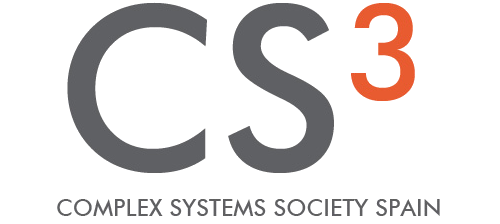
|
For inquiries about this event please contact the Scientific Events Coordinator Ms. Núria Hernández at nhernandez@crm.cat
|
scam warning
We are aware of a number of current scams targeting participants at CRM activities concerning registration or accommodation bookings. If you are approached by a third party (eg travellerpoint.org, Conference Committee, Global Travel Experts or Royal Visit) asking for booking or payment details, please ignore them.
Please remember:
i) CRM never uses third parties to do our administration for events: messages will come directly from CRM staff
ii) CRM will never ask participants for credit card or bank details
iii) If you have any doubt about an email you receive please get in touch
| Robert Benassai | Universitat Oberta de Catalunya | Exploring Pedestrian Permeability in Urban Sidewalk Networks |
| Harry de los Rios | Universitat Oberta de Catalunya | A Bayesian approach to mesoscale patterns: disentangling nestedness, modularity and in-block nestedness |
| Juan Gancio | Universitat Politècnica de Catalunya | Robustness of permutation entropy-based methods in the analysis of EEG signals for distinguishing eyes-open and eyes-closed brain states |
| Marcos Martinez Jimenez | CSIC | Study of the origin of interstellar molecular complexity through explainable machine learning and statistical models |
| Gabriele Poidomani | IMT Alti Studi Lucca | Multiscale Organization of the Human Connectome via Laplacian Renormalization |
| Eva Rifà Rovira | Universitat de Barcelona | Early warning signals in rumor models: distinguishing organic growth from astroturfing |
| Manuel Santos Gutierrez | University of Leicester | Markov matrix perturbations to optimize dynamical and entropy functionals |


